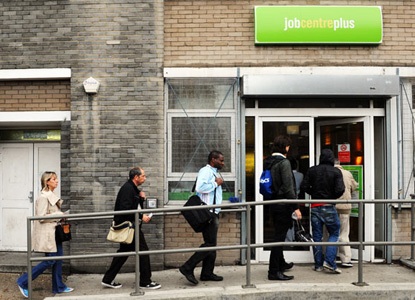By Lucy Phillips | 30 August 2011
Giving local authorities control of Council Tax Benefit certainly fits in with ministers’ localism plans. But by combining it with a 10% grant cut, the coalition is also passing the buck for cutting support to residents
 Any devolution cheers over the government’s decision to give English town halls control over Council Tax Benefit were short-lived.
Any devolution cheers over the government’s decision to give English town halls control over Council Tax Benefit were short-lived.
Along with the responsibility came a 10% cut in central government’s grant to local authorities from April 2013. So, as councils find ways of setting and administering the rebate locally, they also will need to find £490m of savings a year – while struggling with swingeing cuts to staff and budgets.
The Department for Communities and Local Government’s consultation on the plans in August stepped up concern as to where the cuts might fall. Ministers insist the move is in line with the wider decentralisation agenda and will result in a fairer and more effective welfare distribution.
But others see it as a cynical abdication of responsibility for cutting benefits at a time of rising demand.
The Institute for Fiscal Studies has been one of the most vocal opponents of the policy. The institute takes issue with the Treasury’s decision to position Council Tax Benefit outside the new Universal Credit, which will put all other benefits into one from 2014.
James Browne, an IFS senior research economist, says the decision risks making the benefits system more complex and could also undermine the government’s attempts to make work pay.
He tells Public Finance: ‘You are going to have all these local authorities setting up their own systems of CTB that will interact with Universal Credit in peculiar ways... Potentially a lot of the benefits in terms of strengthening work incentives could be severely reduced if the replacement for CTB is badly designed.’
With only 20 months to go until the plans are brought in and much still to be decided, one certainty is that pensioners’ claim to the benefit will be protected. In a clear contradiction of localism, the consultation document says: ‘Government will prescribe the criteria, allowances and awards for council tax support to pensioners which local authorities will need to provide for in their schemes.’ Some 2.7 million of the 5.8 million recipients of CTB are aged 60 or over.
The IFS is concerned that other groups will be disproportionately affected. Browne says: ‘The policy is to reduce total expenditure by 10%, so if you are not cutting the amount given to pensioners then the total spending on people of working age has got to offer more than 10%.’ The options would be to cut rebates to those out of work and/or means-test those on low incomes more aggressively, he says – ‘or [councils] could decide to make savings in other areas and maintain spending on CTB’.
Switching to a fixed grant system from a demand-led benefit, which cost about £4.7bn in 2009/10, is causing angst too. In a paper published in January, the CIPFA Benefits Consortium notes: ‘Where it looks as if the cash limit will be reached before the end of the financial year, a local authority may have to tighten its rules in-year or otherwise reduce awards or refuse to make any further awards. This would inevitably result in unfairness, complexity and confusion for local taxpayers and a burdensome administrative problem for local authorities.’
The New Policy Institute think-tank also vehemently disagrees with the plans. It says it’s inevitable that the poorest areas – where the numbers of claimants are highest – will be hit hardest. However, it adds that in richer places, where low-income households are in higher council tax band properties, individuals stand to lose more. This could lead to more people sharing homes and overcrowding, NPI director Peter Kenway tells PF.
Councils will ‘either have to get money off all working age people, or hit the poor in work. Neither of those are sensible or just.’
Kenway claims the current system – which was brought in by the Conservatives in the 1990s – is ‘well designed’ and should not be meddled with for such relatively small savings. ‘It’s a very clever, very effective benefit that provides comfort to quite a wide range of households. Why tinker with it?’ he says. ‘I don’t think we should be destroying an important system for £490m in such an ill-thought through, ill proposed way.’
He says a better option would have been to look at all the reliefs and allowances in the council tax system to see where ‘there may be room for change’.
Kenway was among the witnesses called to give evidence to the Commons communities and local government select committee, which held a one-off session on ‘localisation issues in welfare reform’ in July.
Two ministers – Grant Shapps for local government and Steve Webb for work and pensions – also attended the hearing to launch a robust defence of the policy.
Shapps said: ‘To local authorities I think the big advantage is that they will have a stake for the first time in what people who live in those homes are doing: in other words, an incentive to help get the person back into work, and so on.
‘Council tax is a local tax set by the local authority. Somewhat bizarrely, the benefit against that tax comes straight from central government, wham, into the middle of it all. Of course, it makes perfect sense to tie together these two ends so that the local authority has a proper picture and control over it.’
Liam Scott-Smith, head of external affairs at the New Local Government Network, sums up the mixed blessing facing councils.
‘It’s great that things are being devolved down,’ he says. These are ‘the sort of powers a modern, forward-thinking council should want – but only at a time of austerity and budget cuts would this type of devolution occur. That’s an unfortunate irony of the situation.’
Scott-Smith says the government missed a trick by not devolving skills and employment funding through the Work Programme, with Local Enterprise Partnerships and councils ‘clamouring’ for such responsibilities but then ‘shut out’.
He adds: ‘The government is doing things to try and get people into work but the councils themselves do not have the tools to do the job creation or skills development to counteract having to withdraw benefits from people.’
He believes that the cuts are more likely to fall on low-income households. ‘Do you take it from someone who is unemployed or someone with some income? It will just come down to harsh numbers and you have to be dispassionate about it,’ he says.
The Local Government Association has found itself awkwardly placed in the debate. A power that council leaders might once have wanted now comes with significant risks attached. LGA vice chair David Sparks says: ‘Giving councils the freedom to target council tax relief at residents who really need it will give local authorities greater autonomy, but big cuts to the money available mean that adopting responsibility won’t be easy... Funding must be flexible enough to ensure local areas are not left out of pocket by any future increase in demand.’
With the short timetable for reform, Sparks also calls on the government to speedily clarify local government’s exact role.
The government’s consultation Localising support for council tax in England runs until October 14.



Giving local authorities control of Council Tax Benefit certainly fits in with ministers’ localism plans. But by combining it with a 10% grant cut, the coalition is also passing the buck for cutting support to residents
 Any devolution cheers over the government’s decision to give English town halls control over Council Tax Benefit were short-lived.
Any devolution cheers over the government’s decision to give English town halls control over Council Tax Benefit were short-lived. Along with the responsibility came a 10% cut in central government’s grant to local authorities from April 2013. So, as councils find ways of setting and administering the rebate locally, they also will need to find £490m of savings a year – while struggling with swingeing cuts to staff and budgets.
The Department for Communities and Local Government’s consultation on the plans in August stepped up concern as to where the cuts might fall. Ministers insist the move is in line with the wider decentralisation agenda and will result in a fairer and more effective welfare distribution.
But others see it as a cynical abdication of responsibility for cutting benefits at a time of rising demand.
The Institute for Fiscal Studies has been one of the most vocal opponents of the policy. The institute takes issue with the Treasury’s decision to position Council Tax Benefit outside the new Universal Credit, which will put all other benefits into one from 2014.
James Browne, an IFS senior research economist, says the decision risks making the benefits system more complex and could also undermine the government’s attempts to make work pay.
He tells Public Finance: ‘You are going to have all these local authorities setting up their own systems of CTB that will interact with Universal Credit in peculiar ways... Potentially a lot of the benefits in terms of strengthening work incentives could be severely reduced if the replacement for CTB is badly designed.’
With only 20 months to go until the plans are brought in and much still to be decided, one certainty is that pensioners’ claim to the benefit will be protected. In a clear contradiction of localism, the consultation document says: ‘Government will prescribe the criteria, allowances and awards for council tax support to pensioners which local authorities will need to provide for in their schemes.’ Some 2.7 million of the 5.8 million recipients of CTB are aged 60 or over.
The IFS is concerned that other groups will be disproportionately affected. Browne says: ‘The policy is to reduce total expenditure by 10%, so if you are not cutting the amount given to pensioners then the total spending on people of working age has got to offer more than 10%.’ The options would be to cut rebates to those out of work and/or means-test those on low incomes more aggressively, he says – ‘or [councils] could decide to make savings in other areas and maintain spending on CTB’.
Switching to a fixed grant system from a demand-led benefit, which cost about £4.7bn in 2009/10, is causing angst too. In a paper published in January, the CIPFA Benefits Consortium notes: ‘Where it looks as if the cash limit will be reached before the end of the financial year, a local authority may have to tighten its rules in-year or otherwise reduce awards or refuse to make any further awards. This would inevitably result in unfairness, complexity and confusion for local taxpayers and a burdensome administrative problem for local authorities.’
The New Policy Institute think-tank also vehemently disagrees with the plans. It says it’s inevitable that the poorest areas – where the numbers of claimants are highest – will be hit hardest. However, it adds that in richer places, where low-income households are in higher council tax band properties, individuals stand to lose more. This could lead to more people sharing homes and overcrowding, NPI director Peter Kenway tells PF.
Councils will ‘either have to get money off all working age people, or hit the poor in work. Neither of those are sensible or just.’
Kenway claims the current system – which was brought in by the Conservatives in the 1990s – is ‘well designed’ and should not be meddled with for such relatively small savings. ‘It’s a very clever, very effective benefit that provides comfort to quite a wide range of households. Why tinker with it?’ he says. ‘I don’t think we should be destroying an important system for £490m in such an ill-thought through, ill proposed way.’
He says a better option would have been to look at all the reliefs and allowances in the council tax system to see where ‘there may be room for change’.
Kenway was among the witnesses called to give evidence to the Commons communities and local government select committee, which held a one-off session on ‘localisation issues in welfare reform’ in July.
Two ministers – Grant Shapps for local government and Steve Webb for work and pensions – also attended the hearing to launch a robust defence of the policy.
Shapps said: ‘To local authorities I think the big advantage is that they will have a stake for the first time in what people who live in those homes are doing: in other words, an incentive to help get the person back into work, and so on.
‘Council tax is a local tax set by the local authority. Somewhat bizarrely, the benefit against that tax comes straight from central government, wham, into the middle of it all. Of course, it makes perfect sense to tie together these two ends so that the local authority has a proper picture and control over it.’
Liam Scott-Smith, head of external affairs at the New Local Government Network, sums up the mixed blessing facing councils.
‘It’s great that things are being devolved down,’ he says. These are ‘the sort of powers a modern, forward-thinking council should want – but only at a time of austerity and budget cuts would this type of devolution occur. That’s an unfortunate irony of the situation.’
Scott-Smith says the government missed a trick by not devolving skills and employment funding through the Work Programme, with Local Enterprise Partnerships and councils ‘clamouring’ for such responsibilities but then ‘shut out’.
He adds: ‘The government is doing things to try and get people into work but the councils themselves do not have the tools to do the job creation or skills development to counteract having to withdraw benefits from people.’
He believes that the cuts are more likely to fall on low-income households. ‘Do you take it from someone who is unemployed or someone with some income? It will just come down to harsh numbers and you have to be dispassionate about it,’ he says.
The Local Government Association has found itself awkwardly placed in the debate. A power that council leaders might once have wanted now comes with significant risks attached. LGA vice chair David Sparks says: ‘Giving councils the freedom to target council tax relief at residents who really need it will give local authorities greater autonomy, but big cuts to the money available mean that adopting responsibility won’t be easy... Funding must be flexible enough to ensure local areas are not left out of pocket by any future increase in demand.’
With the short timetable for reform, Sparks also calls on the government to speedily clarify local government’s exact role.
The government’s consultation Localising support for council tax in England runs until October 14.






















